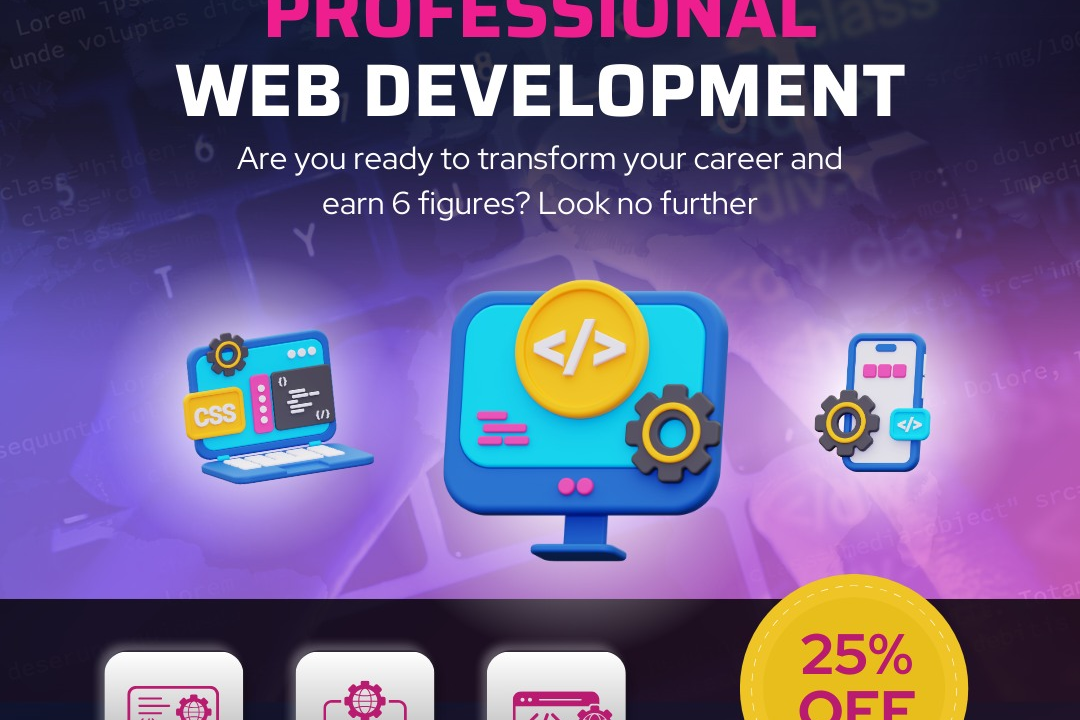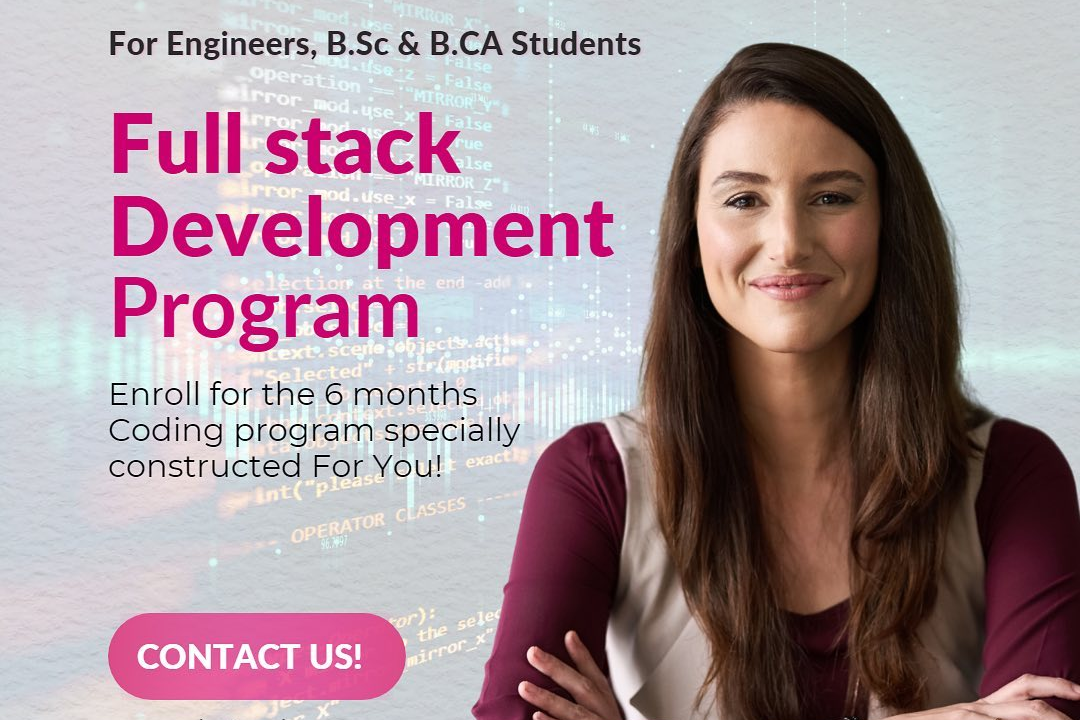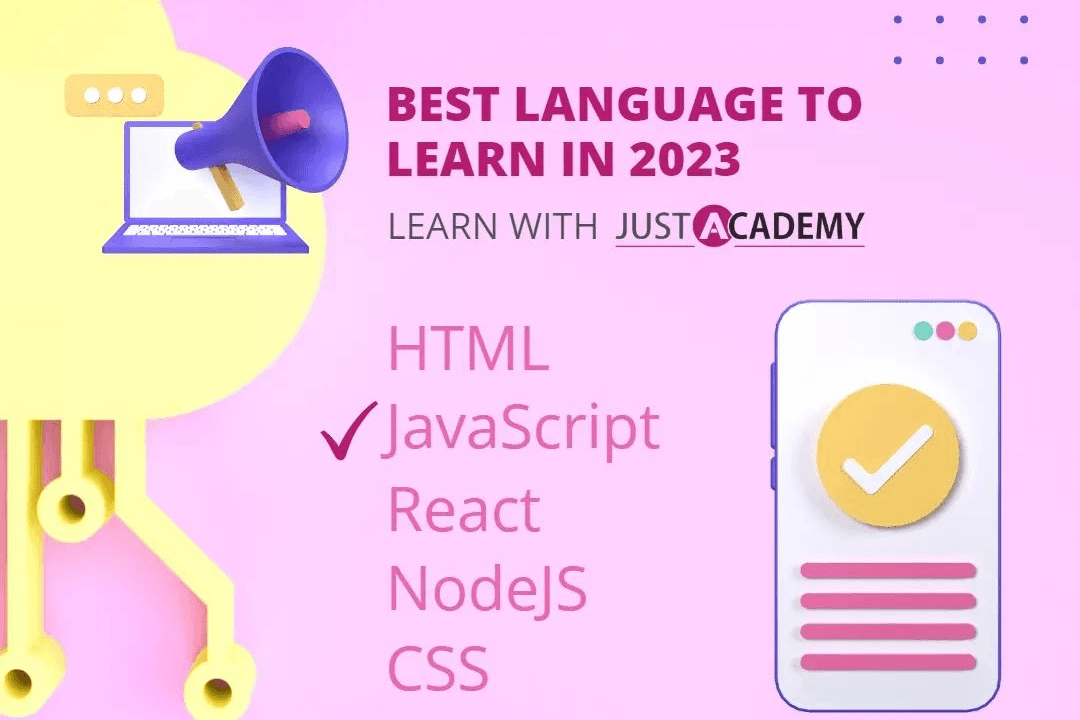Laravel Developer Technical Interview Questions
Technical Interview Questions for Laravel Developers
Laravel Developer Technical Interview Questions
Technical interview questions for Laravel developers play a crucial role in assessing a candidate's proficiency in Laravel's framework, design principles, and ability to apply the MVC pattern. These questions not only evaluate a candidate's knowledge of specific Laravel components, such as Eloquent, Facades, and Blade Templates, but also their understanding of underlying concepts like relationships, migrations, and routing. By asking these questions, interviewers can gauge the candidate's ability to architect and implement robust and scalable Laravel applications.
To Download Our Brochure: https://www.justacademy.co/download-brochure-for-free
Message us for more information: +91 9987184296
1 - Explain the MVC architecture in Laravel and its benefits.
2) Describe the Artisan command line interface and its uses.
3) How do you handle authentication and authorization in a Laravel application?
4) What are the different types of database migrations and how do you use them?
5) Explain the role of Eloquent ORM in Laravel and how it simplifies database interactions.
6) How do you create and manage relationships between models in Laravel?
7) Discuss the use of blade templating engine and its advantages.
8) What are the different types of routes in Laravel and how do you define them?
9) How do you handle form validation and error handling in Laravel?
10) Explain the concept of service providers and their role in extending Laravel functionality.
11 - How do you create and use middleware in Laravel?
12) Describe the use of facades in Laravel and their advantages and disadvantages.
13) How do you handle caching in Laravel and what are the different types of cache drivers?
14) Explain the role of the Laravel container and how it resolves dependencies.
15) How do you test Laravel applications and what are the different types of tests?
How to Get More Points
Redeem Points
- Shop at eligible retailers and earn points for every dollar spent.
- * Use a linked credit card to earn bonus points on purchases.
- * Participate in special promotions and offers that provide extra points.
- Refer Friends
- * Invite friends to join the loyalty program using your referral link.
- * When they sign up and make purchases, you'll earn referral bonus points.
- Complete Surveys and Tasks
- * Participate in surveys and complete tasks offered by the loyalty program.
- * These activities typically provide a small number of points, but they can add up over time.
- Use Points Strategically
- * Save points for higher value redemptions, such as gift cards, travel, or exclusive experiences.
- * Use points during special events or promotional periods to maximize their value.
- * Consider transferring points to partner programs for additional redemption options.
- Stay Engaged
- * Regularly check your loyalty account to track your points balance.
- * Read promotional emails and participate in challenges or events to earn bonus points.
- * Follow the loyalty program on social media to stay updated on new offers and opportunities.
- Explore Elite Tiers
- * Some loyalty programs offer tiered levels with additional benefits and faster point accumulation.
- * Reach higher tiers by meeting spending thresholds or earning a specific number of points.
- Negotiate:
- * In some cases, it may be possible to negotiate with the loyalty program for additional points or benefits.
- * Contact customer service and politely ask if there are any opportunities to increase your points balance.
- Consider Loyalty Credit Cards
- * Sign up for a credit card linked to the loyalty program.
- * Use the card for everyday purchases to earn bonus points and accelerate your progress.
- Additional Tips
- * Use multiple methods to earn points (e.g., shopping, referrals, surveys).
- * Set a goal for how many points you want to earn each month or year.
- * Stay organized and keep track of your points balance and redemptions.
- * Be patient and persistent; it takes time to accumulate a significant number of points.
- Upvoting others:* Upvoting quality content that you find helpful or interesting is a great way to get more points. This shows other users that you appreciate their work and encourages them to continue contributing.
- Creating high quality content:* Sharing your own knowledge and expertise by creating informative or entertaining posts is a great way to get more points. The more valuable your content is to other users, the more likely it is to get upvoted.
- Participating in discussions:* Joining in on conversations and sharing your thoughts and opinions is a great way to get involved in the community and earn points. The more active you are in discussions, the more likely you are to be noticed by other users.
- Joining groups and factions:* Groups and factions are a great way to connect with other users who share your interests. By participating in group discussions and activities, you can earn points and make new friends.
- Completing tasks and achievements:* Many platforms offer tasks and achievements that you can complete to earn points. These tasks can range from simple things like creating a profile to more complex activities like completing a certain number of posts or participating in a certain number of discussions.
- Voting in polls:* Voting in polls is a quick and easy way to earn points. Simply cast your vote on the polls that interest you and you'll earn points for each vote you cast.
- Inviting friends:* Inviting your friends to join the platform can earn you bonus points. When your friends sign up and become active users, you'll earn points for each one of them.
- Course Overview
- This course provides comprehensive preparation for technical interview questions specific to Laravel developers, covering core concepts, database operations, authentication, MVC architecture, RESTful APIs, and more. It empowers aspiring developers with the knowledge and skills to confidently navigate the technical interview process and land their desired Laravel developer role.
- Course Description
- Learn technical interview questions and answers for Laravel developers to ace your job interviews. Cover topics such as Laravel architecture, HTTP requests, database queries, caching, and testing. Gain insights into industry-specific questions and prepare effectively to showcase your Laravel expertise.
- Key Features
- 1 - Comprehensive Tool Coverage: Provides hands-on training with a range of industry-standard testing tools, including Selenium, JIRA, LoadRunner, and TestRail.
- 2) Practical Exercises: Features real-world exercises and case studies to apply tools in various testing scenarios.
- 3) Interactive Learning: Includes interactive sessions with industry experts for personalized feedback and guidance.
- 4) Detailed Tutorials: Offers extensive tutorials and documentation on tool functionalities and best practices.
- 5) Advanced Techniques: Covers both fundamental and advanced techniques for using testing tools effectively.
- 6) Data Visualization: Integrates tools for visualizing test metrics and results, enhancing data interpretation and decision-making.
- 7) Tool Integration: Teaches how to integrate testing tools into the software development lifecycle for streamlined workflows.
- 8) Project-Based Learning: Focuses on project-based learning to build practical skills and create a portfolio of completed tasks.
- 9) Career Support: Provides resources and support for applying learned skills to real-world job scenarios, including resume building and interview preparation.
- 10) Up-to-Date Content: Ensures that course materials reflect the latest industry standards and tool updates.
Benefits of taking our course
Functional Tools
Tools Used in Course: Laravel Developer Technical Interview Questions
- Laravel Framework: Open source PHP framework for web development, providing robust features like routing, authentication, and database interaction.
- 2. PHPUnit: Unit testing framework for PHP, allowing developers to write tests for their code, ensuring its validity and consistency.
- 3. Composer: Dependency manager for PHP, simplifying the installation and management of external packages and libraries.
- 4. Artisan: Command line tool built into Laravel, enabling developers to perform various tasks related to application management, such as migrations, seeding, and generating code.
- 5. Blade: Template engine for Laravel, allowing for the creation of dynamic and reusable views using PHP code and directives.
- 6. MySQL: Relational database management system used in Laravel for storing and manipulating data efficiently.
- Training Program for Students
- Introduction to Laravel and its ecosystem
- * Setting up a Laravel development environment
- * Understanding Laravel's core concepts (MVC, Eloquent, Routing)
- * Writing unit tests using PHPUnit
- * Managing dependencies with Composer
- * Utilizing Artisan for application management
- * Working with MySQL databases
- * Building a sample Laravel application
- * Hands on coding exercises and projects
- * Mock technical interviews to prepare for the job market
- * Mentorship and career guidance from experienced Laravel developers
- Increase Content Quality and Value
- * Create well researched, informative content that resonates with your audience.
- * Focus on providing actionable insights, practical tips, and valuable information.
- * Use storytelling and personal anecdotes to make your content more engaging.
- Optimize for Search Engines (SEO)
- * Research relevant keywords and incorporate them into your content.
- * Use header tags (H1, H2) to structure your content logically.
- * Optimize images with alt text and descriptions.
- * Build backlinks from reputable sources to improve your website's authority.
- Promote on Social Media
- * Share your content on relevant social media platforms.
- * Engage with your followers and encourage them to like, share, and comment.
- * Run targeted social media ads to reach a wider audience.
- Build a Community
- * Create an email list and nurture your subscribers with valuable content.
- * Host webinars, workshops, or Q&A sessions to connect with your audience.
- * Encourage user generated content and share it on your website or social media.
- Collaborate with Influencers
- * Identify influencers in your niche and reach out to them for collaborations.
- * Offer guest posting opportunities or cross promotions to leverage their audience.
- Engage with Your Audience
- * Respond to comments and messages on your website and social media.
- * Conduct surveys and polls to gather feedback and improve your content.
- * Offer personalized recommendations or advice based on your audience's interests.
- Provide Exceptional Customer Service
- * Ensure your website is easy to navigate and provides a seamless user experience.
- * Offer prompt and helpful support to any questions or issues your audience encounters.
- * Collect testimonials and reviews to showcase your credibility and trustworthiness.
- Analyze and Track Results
- * Use analytics tools to track website traffic, engagement, and conversions.
- * Analyze data to identify what content and strategies are working best.
- * Adjust your approach based on the results to optimize your efforts.
Browse our course links : https://www.justacademy.co/all-courses
To Join our FREE DEMO Session: Click Here
This information is sourced from JustAcademy
Contact Info:
Roshan Chaturvedi
Message us on Whatsapp:
Email id: info@justacademy.co
Flutter AND Dart Jobs For Freshers in Bangalore
Angular 1 Advanced Interview Questions












